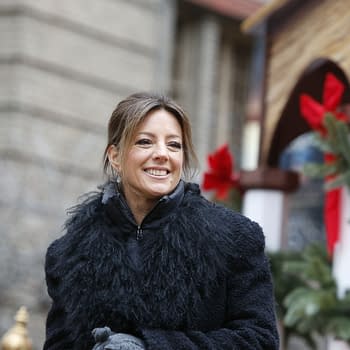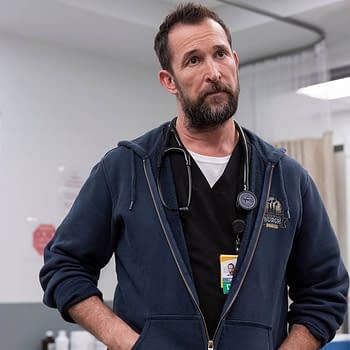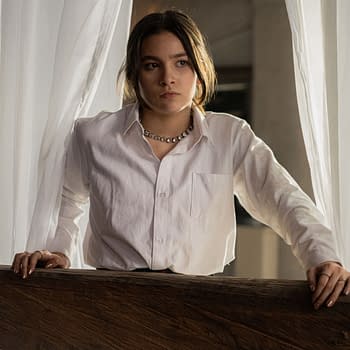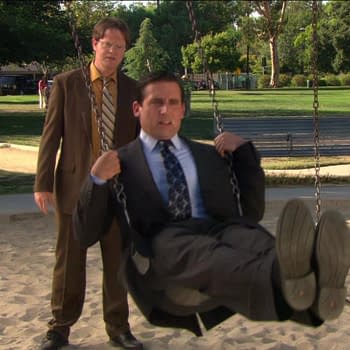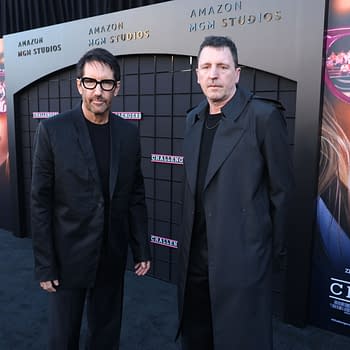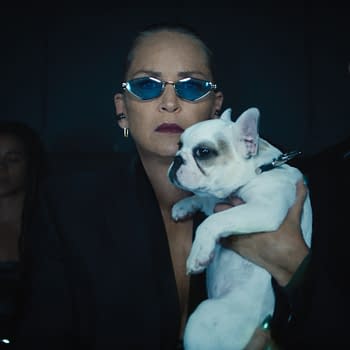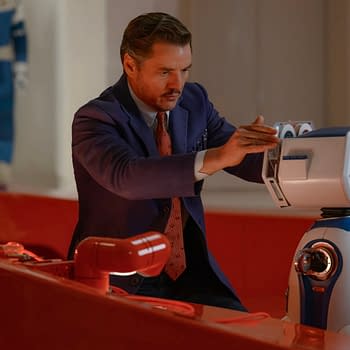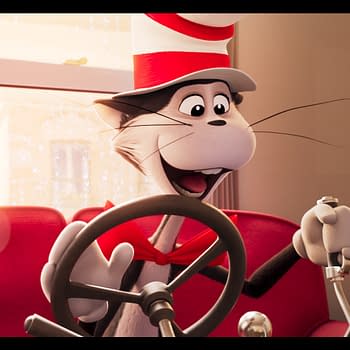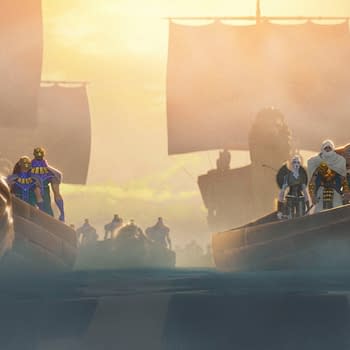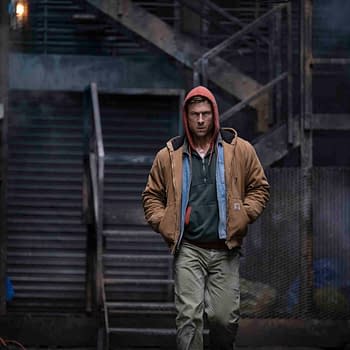Posted in: Exclusive, Interview, Movies | Tagged: 57 Seconds, exclusive, Greg Germann, interview, josh hutcherson, Lovie Simone, Morgan Freeman, Rusty Cundieff, The Avenue
57 Seconds Dir. Rusty Cundieff on Making Credible Time Travel Sci-Fi
Director Rusty Cundieff (Creepshow) talks to Bleeding Cool about adapting E.C. Tubbs' 'Lucifer' to time travel sci-fi action in 57 Seconds.
Article Summary
- Rusty Cundieff discusses adapting 'Lucifer' to time travel sci-fi for '57 Seconds'.
- Josh Hutcherson and Morgan Freeman star in the action-packed time-altering film.
- Cundieff uses real-world science to lend authenticity to the time-travel mechanism.
- '57 Seconds' explores themes of power misuse and personal demons with a unique time-travel twist.
Rusty Cundieff has come a long way as an actor and director, celebrating nearly 40 years on screen and over 30 behind the camera. He made his directorial film debut in 1993's Fear of a Black Hat and followed up with 1995's Tales from the Hood. He grew to become one of the most credible and versatile directors around, gaining serious traction in the comedy scene with his contributions to The Bernie Mac Show, Chappelle's Show, and The Wanda Sykes Show while not veering off from horror with the next two installments in Tales from the Hood franchise and the TV adaptation of Creepshow. His latest foray is the action sci-fi thriller in The Avenue's 57 Seconds, which follows a tech blogger (Josh Hutcherson) who discovers a time-altering device; he unleashes its power to rewrite the past and seek revenge against the ruthless corporate empire that destroyed his family. But his actions soon trigger a terrifying chain of events, propelling him into a pulse-pounding battle for survival where every second counts. Cundieff spoke to Bleeding Cool about the inspiration for the premise, casting, going the extra mile for Morgan Freeman, and comparing the film and television worlds. The following contains minor spoilers.
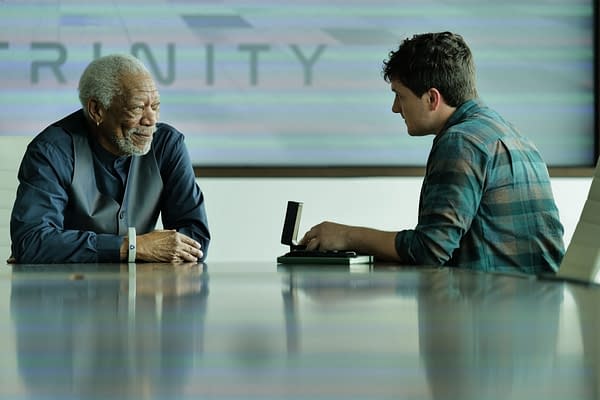
Building the Science Behind '57 Seconds'
Bleeding Cool: What's the inspiration behind '57 Seconds?'
Cundieff: '57 Seconds' began its journey to the screen from one of our producers in his childhood reading a story by E. C. Tubbs called 'Lucifer,' which told the story of an evil guy who finds a ring that can take him back 57 seconds in time.
Regarding developing it to the script, what process does it take to make it a tangible project to film?
Looking at the short story, we're all used to time travel as a concept, but the limitation of being able to only go back 57 seconds and not being able to repeat that over again immediately so that you could go back a week in time or whatever. It was a cool mechanism. Taking the dark story, the protagonist, if you can call him that in the story, is a dark character. The trick was finding a way to take this dark protagonist and make him someone you could root for in a feature film. That required giving him something to fight against.
Looking at what was going on with OxyContin at the time and the Sackler family, it was like, "That's something that someone could fight against. His ring is that it could become weaponized in his journey to take this company down." At the same time, it could also give him some issues where he was fighting internally with himself. In terms of using the ring and how much he wanted to use it, there's a theme in the film that looks at "How much power is too much power? How do we adjust for ourselves when we can do certain things?" Can something that's used for good suddenly become bad? That thought played my part in creating a script from the short story that E.C. Tubbs had made.
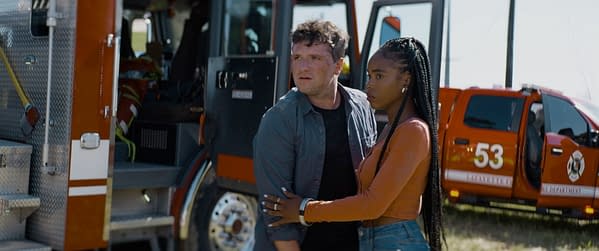
Can you break down the casting and how Josh [Hutcherson] and Morgan [Freeman] got involved?
Josh came on board first. He read whatever draft I had finished that had that version of the story in there. I can't tell you how many different approaches I tried before we found something we felt actors would respond to. We were fortunate that Josh liked that character. After we got Josh on board, one of our producers had connections to Morgan Freeman's production company, and we went to them with the script. What was interesting is that Morgan is a huge fan of science, and to get him to agree to be involved in the script, we had to figure out a way to put something real in the science of the ring, which was the crystals. I had to go and start talking to neuroscientists and physicists to try and figure out something legitimate that we could then extrapolate how this time travel aspect could happen. There's a germ of that in there, but to get Morgan to agree to come on to the project, we had to figure out some way to make that happen. That was a big process that took us some time to do because as someone goes to the movies, I go, "It's time travel, and that's fine." I'm not trying to figure out how it happened in a real way. I don't need that jumping-off point, but Morgan was adamant about it. It's to the film's benefit that he forced us to think harder.
That leads to my next question: there's such a wealth of time-traveling stories out. Are there any that helped you in the process of creating '57 Seconds
I don't know that there was anyone we thought of. This isn't a new area to play in time travel. It was going, "What about this? How does our story branch off from what these other things are?" It was connecting it to his journey of trying to fight his demons while he's fighting these external demons of drugs and, to some degree, the AI Morgan Freeman's character is creating. While he's fighting his demons, that seemed to be something I hadn't seen in sci-fi. I'm not saying that's not out there because I haven't seen every sci-fi movie, but I hadn't seen that in the genre before. Then there's the ending. Not to be too spoiler-y, but I'm playing around with the end where the plane is going down, which is one of the things that we did take from the short story, the idea now you're in a place where you're trying to save yourself, but you can never get back far enough to save yourself. That is something you've brought on by your actions when faced with that predicament. All those things we felt pushed us away from some of the other sci-fi time travel stories.
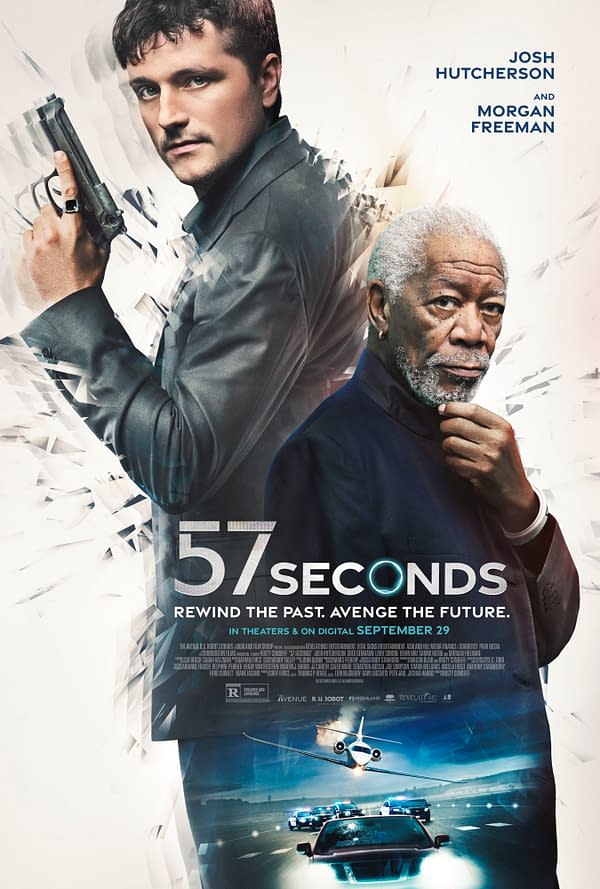
You worked in both the TV and film worlds. How do you compare one versus the other?
There are differences, for sure. If television has helped me all on the filmmaking side, you must be specific and quick when you're shooting TV. Your days are tight, and there's a lot that you sometimes must cram into them. On the other hand, how film is different is generally when you're a director going in on a TV episode if it's an episodic and assuming you are not a producer on the show. In that case, you're following the format that the show has already created, their style choices and how they shoot their television show, how they move the camera, the equipment they use, how they cut, how they edit all of that.
When you go over to the film side, the canvas is hoping. There's nothing in front of you that says it must be one way or the other, even if it's a genre project or if you're doing another dystopian project where you can still shoot that however you want. Those are what the differences are, but what TV does do is it teaches you how to stay on schedule because you can't go over sometimes in television in terms of days, I'm speaking. That helped me in this because we had 18 shooting days, and we had a lot to cram into those 18 days.
57 Seconds, which also stars Greg Germann, Lovie Simone, Bevin Bru, and Sammi Rotibi, is available in theaters and on digital.







